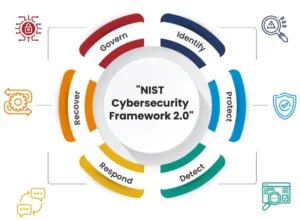
Table of Contents
Introduction – ISO 42001 – Artificial Intelligence Management System
In the ever-evolving landscape of artificial intelligence (AI), organizations worldwide are grappling with the challenges of managing AI systems effectively. Enter ISO/IEC 42001:2023, a comprehensive standard that aims to demystify and provide guidelines for managing AI systems.
This blog post will take you on a journey to demystify ISO/IEC 42001:2023, exploring its key aspects, significance, and practical insights for organizations navigating the complexities of AI management.
Understanding ISO/IEC 42001:2023 – Artificial Intelligence Management System
ISO/IEC 42001:2023 is a standard specifically tailored for AI management systems. Titled “Artificial Intelligence – Management systems – Requirements,” this standard offers a structured framework for organizations to establish, implement, maintain, and continually improve effective AI management systems.
Key Elements of ISO/IEC 42001:2023 for AI Management
1. Context of the Organization in the AI Landscape:
Just like other ISO standards, ISO/IEC 42001:2023 emphasizes understanding the internal and external context of an organization concerning AI. This involves identifying stakeholders, legal and ethical considerations, and the broader AI ecosystem.
2. Leadership and AI Governance:
AI governance is a critical aspect covered in the standard. It requires organizations to establish clear policies and governance structures for AI systems, ensuring that decision-making aligns with organizational objectives and values.
3. AI Risk Management:
Managing risks associated with AI is a key focus. ISO/IEC 42001:2023 encourages organizations to adopt a risk-based approach to identify, assess, and mitigate risks related to AI systems. This aligns with the growing recognition of the need for responsible AI practices.
4. Ethical Considerations:
Ethical considerations play a central role in AI management. The standard prompts organizations to address ethical implications, transparency, and accountability in the development, deployment, and use of AI systems.
5. AI Life Cycle:
The standard guides organizations through the entire AI life cycle, from conceptualization and development to deployment, monitoring, and decommissioning. Each stage is carefully outlined to ensure the effectiveness and ethical use of AI technologies.
6. Data Management in AI Systems:
Recognizing the critical role of data in AI, the standard emphasizes proper data management. This includes considerations for data quality, privacy, and security throughout the AI life cycle.
7. Performance Monitoring and Evaluation:
ISO/IEC 42001:2023 promotes the continuous monitoring and evaluation of AI systems’ performance. This involves setting performance indicators, measuring outcomes, and adjusting strategies based on real-time feedback.
8. AI System Improvement:
Continuous improvement is a fundamental principle. The standard encourages organizations to learn from experiences, incorporate lessons into their AI systems, and adapt to emerging challenges and opportunities.
Significance of ISO/IEC 42001:2023 for Organizations
1. Global Standardization:
ISO/IEC 42001:2023 provides a globally recognized framework, fostering consistency and standardization in AI management practices. This is particularly valuable for organizations operating on an international scale or collaborating with partners worldwide.
2. Risk Mitigation:
By adopting a risk-based approach, organizations can proactively identify and mitigate potential risks associated with AI systems. This not only safeguards the organization but also contributes to building trust among stakeholders.
3. Ethical AI Practices:
With an explicit focus on ethical considerations, the standard guides organizations in developing AI systems that align with ethical principles. This is increasingly crucial in an era where responsible AI is a key concern for users, regulators, and the public.
4. Improved Decision-Making:
AI systems often play a pivotal role in decision-making processes. ISO/IEC 42001:2023 helps organizations ensure that AI-driven decisions align with organizational goals, values, and legal requirements, enhancing the overall quality of decision-making.
5. Enhanced Reputation and Trust:
Adhering to ISO/IEC 42001:2023 signals a commitment to high standards in AI management. This can enhance an organization’s reputation, build trust with stakeholders, and differentiate it in the competitive landscape.
Practical Insights for Implementing ISO/IEC 42001:2023
Implementing ISO/IEC 42001:2023 for AI management systems involves a systematic approach. Here are practical insights to guide organizations through the implementation process:
1. Leadership Engagement:
Secure commitment from top leadership to drive the implementation of ISO/IEC 42001:2023. Establish a governance structure that oversees AI management and decision-making.
2. Context Analysis:
Understand the context in which AI systems operate. Identify stakeholders, legal and regulatory requirements, and ethical considerations that shape the organization’s AI landscape.
3. Risk Assessment and Mitigation:
Conduct a thorough risk assessment specific to AI systems. Identify potential risks associated with bias, privacy, security, and other factors. Develop strategies to mitigate and manage all these risks.
4. Ethics Framework:
Develop and implement an ethics framework that guides the ethical use of AI. This should encompass transparency, accountability, fairness, and respect for privacy throughout the AI life cycle.
5. Data Governance:
Establish robust data governance practices to ensure the quality, privacy, and security of data used in AI systems. This includes data collection, storage, processing, and sharing.
6. Performance Monitoring and Evaluation:
Define key performance indicators (KPIs) to measure the effectiveness and impact of AI systems. Implement monitoring mechanisms to track performance in real-time and evaluate outcomes against predefined benchmarks.
7. Continuous Improvement:
Foster a culture of continuous improvement within the organization. Learn from the performance of AI systems, user feedback, and emerging trends in AI technology to adapt and enhance practices over time.
8. Training and Awareness:
Provide training to personnel involved in AI management to ensure they are well-versed in the requirements of ISO/IEC 42001:2023. Raise awareness about ethical considerations and the importance of responsible AI practices.
Conclusion
ISO/IEC 42001:2023 serves as a guiding light for organizations navigating the intricate landscape of AI management.
By understanding its key elements, recognizing its significance, and implementing practical insights, organizations can not only meet the requirements of the standard but also foster responsible, ethical, and effective AI practices.
As AI continues to shape the future of industries, ISO/IEC 42001:2023 provides a roadmap for organizations to harness the power of AI while ensuring responsible and sustainable use.
Read more on https://cybertechworld.co.in for insightful cybersecurity related content.




















Thank you for your sharing. I am worried that I lack creative ideas. It is your article that makes me full of hope. Thank you. But, I have a question, can you help me?
Your article helped me a lot, is there any more related content? Thanks!